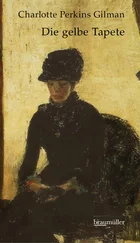Charlotte Gilman - Concerning Children
Здесь есть возможность читать онлайн «Charlotte Gilman - Concerning Children» — ознакомительный отрывок электронной книги совершенно бесплатно, а после прочтения отрывка купить полную версию. В некоторых случаях можно слушать аудио, скачать через торрент в формате fb2 и присутствует краткое содержание. Жанр: foreign_prose, на английском языке. Описание произведения, (предисловие) а так же отзывы посетителей доступны на портале библиотеки ЛибКат.
- Название:Concerning Children
- Автор:
- Жанр:
- Год:неизвестен
- ISBN:нет данных
- Рейтинг книги:5 / 5. Голосов: 1
-
Избранное:Добавить в избранное
- Отзывы:
-
Ваша оценка:
- 100
- 1
- 2
- 3
- 4
- 5
Concerning Children: краткое содержание, описание и аннотация
Предлагаем к чтению аннотацию, описание, краткое содержание или предисловие (зависит от того, что написал сам автор книги «Concerning Children»). Если вы не нашли необходимую информацию о книге — напишите в комментариях, мы постараемся отыскать её.
Concerning Children — читать онлайн ознакомительный отрывок
Ниже представлен текст книги, разбитый по страницам. Система сохранения места последней прочитанной страницы, позволяет с удобством читать онлайн бесплатно книгу «Concerning Children», без необходимости каждый раз заново искать на чём Вы остановились. Поставьте закладку, и сможете в любой момент перейти на страницу, на которой закончили чтение.
Интервал:
Закладка:
This would mean that the whole tremendous march of race-modification has been made under no other influence than the tendency to vary, and that individual modification in no way affects the race.
Successive generations of individuals may be affected by the cumulative pressure of progress, but not the race itself. Under this view the Fuegian baby would be as valuable an investment as the English baby, unless, indeed, successive and singularly connected tendencies to vary had worked long upon the English stock and peculiarly neglected the Fuegian. In proof of this claim that "acquired traits are not transmissible," an overwhelming series of experiments are presented, as wherein many consecutive generations of peaceful guinea pigs are mutilated in precisely the same way, and, lo! the last guinea pig is born as four-legged and symmetrically-featured as the first.
If it had been so arranged that the crippled guinea pigs obtained some advantage because of their injuries, they might have thus become "fittest"; and the "tendency to vary" would perhaps have launched out a cripple somewhere, and so evolved a triumphant line of three-legged guinea pigs.
But, as proven by these carefully conducted scientific experiments, it does not "modify the species" at all to cut off its legs, – not in a score of generations. It modifies the immediate pig, of course, and is doubtless unpleasant to him; but the effect is lost with his death.
It has always seemed to me that there was a large difference between a mutilation and an acquired trait. An acquired trait is something that one uses and developes, not something one has lost.
The children of a soldier are supposed to inherit something of his courage and his habit of obedience, not his wooden leg.
The dwindled feet of the Chinese ladies are not transmitted; but the Chinese habits are. The individual is most modified by what he does, not by what is done to him; and so is the race.
Let a new experiment be performed on the long-suffering guinea pig. Take two flourishing pair of the same family (fortunately, the tendency to vary appears to be but slight in guinea pigs, so there is not serious trouble from that source), and let one pair of guinea pigs be lodged in a small but comfortable cage, and fed and fed and fed, – not to excess, but so as to supply all guinea-piggian desires as soon as felt, – them and their descendants in their unnumbered generations. Let the other pair be started on a long, slow, cautious, delicate but inexorable system of exercise, not exercise involving any advantage, with careful mating of the most lively, – for this would be claimed as showing only the "tendency to vary" and "survival of the fittest," – but exercise forced upon the unwilling piggies to no profit whatever.
A wheel, such as mitigates the captivity of the nimble squirrel, should be applied to these reluctant victims; a well-selected, stimulating diet given at slowly increasing intervals; and the physical inequalities of their abode become greater, so that the unhappy subjects of scientific research would find themselves skipping ever faster and farther from day to day.
If, after many generations of such training, the descendants of these cultivated guinea pigs could not outrun the descendants of the plump and puffy cage-fed pair, the Weissman theory would be more strongly re-enforced than by all the evidence of his suffering cripples. Meanwhile the parent and teacher in general is not greatly concerned about theories of pan-genesis or germ-plasm. He knows that, "as the twig is bent, the tree's inclined," and that, if the fathers have eaten sour grapes, the children's teeth are pretty certain to be set on edge.
Inherit we must to some degree; and whatever comes to us by that method must belong to the parent before he is a parent. Traits acquired after parentage are certainly not transmissible, whatever may be the case before. Our inherited constitution, temper, character, tendency, is like an entailed estate. It is in the family, belongs to the family in succession, not to the individual. It is "owned" by the individual in usufruct, but cannot be sold, given away, or otherwise alienated. It must be handed on to the next heir, somewhat better or worse, perhaps, for the current ownership. When the new heir takes possession of his estate, he confers with the steward, and becomes thoroughly acquainted with his holdings. Here are the assets, – this much in permanent capital, this much in income, which he may use as he will. It would be possible for him to overspend that income, to cut down the timber and sell it, to incur debts, impoverishing the next heir. Perhaps this has been done; and he finds himself with neglected lands, buildings in disrepair, restricted resources, and heavy debts. In such case the duty of the heir is to live carefully, avoiding every extravagance, and devote all he can save to clearing off the encumbrances on the estate, thus handing it on to the next heir in better shape than he received it. If this is not done, if one generation after another of inheritors draws relentlessly on the burdened estate and adds to its encumbrances, there comes a time when the heavy mortgages are foreclosed, and that estate is lost.
So with the human constitution. We inherit such and such powers and faculties; such and such weaknesses, faults, tendencies to disease. Our income is the available strength we have to spare without drawing on our capital. Perhaps our ancestors have overdrawn already, wasting their nerve force, injuring their organisms, handing down to us an impoverished physique, with scarce income enough for running expenses, yet needing a large sinking fund for repairs.
In this case it is our plain duty to live "within our means" in nerve force, however limited, and to devote all we can spare to building up the constitution, that we may transmit it in an improved condition to the next heir. If we do not do this, if successive generations overdraw their strength, neglect necessary rest and recreation, increase their weaknesses and diseases, then there comes a time when the inexorable creditor called Nature forecloses the mortgage, and that family is extinct. The heir of the entailed estate in lands and houses has an advantage over the heir of blood and brain. He does not transmit his property until he dies. He has a lifetime to make the needed improvements. But the inheritor of poor eyesight, weak lungs, and a bad temper has a shorter period for repairs. If a woman, she is likely to become a mother by the time she is twenty-five, – perhaps sooner; the man, a father by thirty.
Taking the very early marriages of the poor into consideration (and they are a heavy majority of the population), we may take twenty-five as the average beginning of parenthood. Of course there is still room for improvement before the later children appear; but the running expenses increase so heavily that there is but a small margin to be given to repairs. The amount of nerve force hitherto set aside to control the irritable temper will now be drawn upon by many new demands: the time given to special exercises for the good of the lungs will now be otherwise used. However good the intentions afterward, the best period for self-improvement is before the children come. This reduces the time in which to develope humanity's inheritance to twenty-five years. Twenty-five years is not much at best; and that time is further limited, as far as individual responsibility goes, by subtracting the period of childhood. The first, say, fifteen years of our lives are comparatively irresponsible. We have not the judgment or the self-control to meddle with our own lives to any advantage; nor is it desirable that we should. Unconscious growth is best; and the desired improvement during this period should be made by the skilful educator without the child's knowledge. But at about fifteen the individual comes to a keen new consciousness of personal responsibility.
Читать дальшеИнтервал:
Закладка:
Похожие книги на «Concerning Children»
Представляем Вашему вниманию похожие книги на «Concerning Children» списком для выбора. Мы отобрали схожую по названию и смыслу литературу в надежде предоставить читателям больше вариантов отыскать новые, интересные, ещё непрочитанные произведения.
Обсуждение, отзывы о книге «Concerning Children» и просто собственные мнения читателей. Оставьте ваши комментарии, напишите, что Вы думаете о произведении, его смысле или главных героях. Укажите что конкретно понравилось, а что нет, и почему Вы так считаете.












